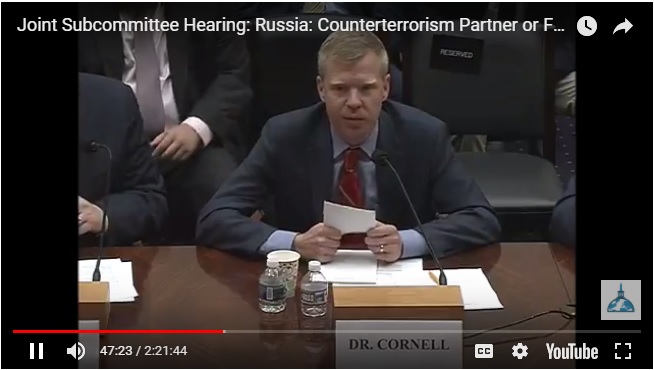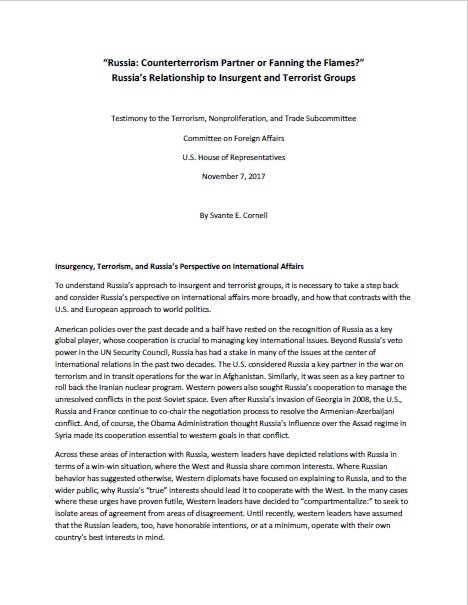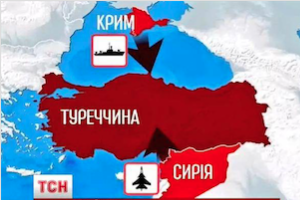The U.S. and Turkey: Past the Point of No Return?
The American Interest
MIDDLE EAST AFLAME
The U.S. and Turkey: Past the Point of No Return?
With Ankara and Washington on a collision course in northern Syria, both sides will have to rethink their priorities if they want to salvage an increasingly hollow alliance.
U.S.-Turkish relations have deteriorated for some time. But until recently, no one would have thought that the American and Turkish militaries, closely allied since the 1950s, could end up confronting each other directly. Yet in northern Syria today, that is no longer unthinkable.
In mid-January, to forestall U.S. intentions to build a “Border Security Force” composed mainly of Syrian Kurdish fighters, Turkey launched a military operation in the Kurdish-controlled Afrin enclave in northwestern Syria. On January 24, Turkish President Recep Tayyip Erdoğan expressed his determination to move beyond Afrin into other parts of northern Syria, mentioning specifically the town of Manbij, where U.S. forces are deployed alongside Kurdish YPG troops. Turkish officials warned the United States to sever its ties to the Kurdish forces, which Turkey considers a terrorist group. This led President Donald Trump to tell Erdoğan to “avoid any actions that might risk conflict between Turkish and American forces.”
The collision course Ankara and Washington are on is making any notion of a Turkish-American alliance increasingly hollow. If a point of no return is to be avoided, both sides will have to rethink their priorities, and begin to build trust. That process can begin with an honest appraisal of how we got to this point, with America and Turkey on the verge of coming to blows.
In the United States, much of the blame has naturally been laid at the feet of Erdoğan, the headstrong and authoritarian Turkish President. To American eyes, it is easy to see how Erdoğan’s growing intolerance of dissent goes hand in hand with an increasingly adventurist foreign policy that directly challenges American interests. Yet while Erdogan is part of the problem, its full scope goes far beyond a single individual. The real story of the past several years is how the Syrian and Kurdish issues have interacted with Turkish domestic politics to pull Ankara and Washington apart.
Russia and the Taliban: Svante Cornell’s House Joint Subcommittee Testimony on Russia and Terrorism
On November 7, Svante Cornell testified at a Joint Subcomittee Hearing on "Russia: Counterterrorism Partner or Fanning the Flames?" convened by the Subcommittees on Terrorism, Nonproliferation and Trade and Europe, Eurasia and Emerging Threats of the Committee on Foreign Relations of the U.S. House of Representatives.
The video of the event is available from the following link, with Dr. Cornell's statement at minute 47.
For the written testimony, click here,
How Turkish-Russian Tensions Affect Central Asia and the Caucasus
CACI Forum
Wednesday, March 23, 2016, from 5 to 7 p.m.
(reception at 5 p.m. with Georgian wine, followed by the main program at 5:30)
Russia's seizure of Crimea and Russia's ongoing military campaign in Syria have transformed the strategic landscape from the Eastern Mediterranean and Black Sea region to the Caspian area. Grave tensions between Russia and Turkey were mounting even before Putin and Erdogan launched into a florid and vituperative war of words, which continues unabated.
Our speakers will delve into the many levels of this confrontation, offer important perspectives on how it is affecting security and economic life in the Caucasus and Central Asia, and suggest where it all might lead.
A video recording of this event can be viewed on the SAIS Events channel on Youtube.
Speakers:
Eric Edelman, Roger Hertog Distinguished Practitioner-in-Residence at the Philip Merrill Center for Strategic Studies, SAIS
Avinoam Idan, Nonresident Senior Fellow, Central Asia-Caucasus Institute & Silk Road Studies Program
Vladislav Inozemtsev, Director and Founder, Center for Post-Industrial Studies, Moscow
Olga Oliker, Senior Adviser and Director, Russia and Eurasia Program, CSIS
Kurt Volker, Executive Director, McCain Institute, and former US Ambassador to NATO
Moderator: Svante Cornell, Director, Central Asia-Caucasus Institute
Rome Building Auditorium
SAIS - Johns Hopkins University
1619 Massachusetts Ave., NW
Washington, DC 20036
Click here to RSVP and register




